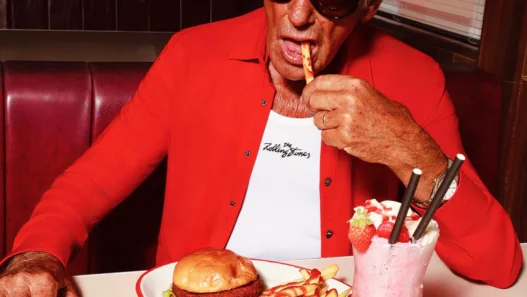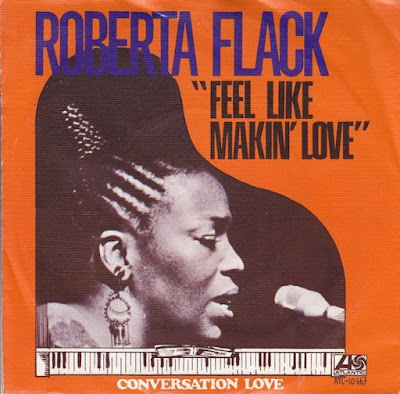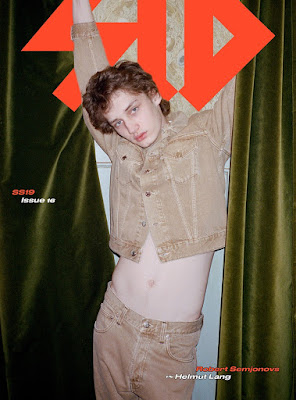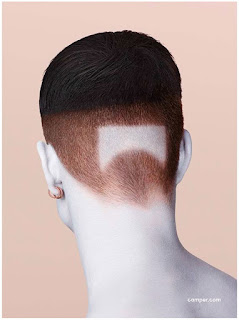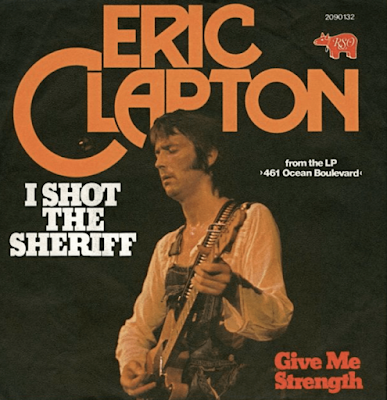According to one of our musical sources:
“Roberta Flack – “Feel Like Makin’ Love”
HIT #1: August 10, 1974
STAYED AT #1: 1 week
Sometimes, texture wins. On the singles chart, it doesn’t happen often. The Billboard Hot 100 is a chart driven by hooks, by novelty, and by the fun celebrity narratives that so often intersect with pop songs. Historically, that’s almost always been the case. But every once in a while, a song will triumph just by creating an atmosphere, a vibe. It’ll win by layering pretty sounds in specific ways. It’ll cast its spell. Roberta Flack certainly knew her way around a hook, and her first two #1 singles, “The First Time Ever I Saw Your Face” and “Killing Me Softly With His Song,” managed to combine hooks with texture. But Flack’s third and final #1 was almost all vibe.
“Feel Like Makin’ Love” came out of a difficult time for Flack. After working day jobs and struggling, she’d become a star in her mid-30s, thanks to a fluke appearance on the soundtrack of a Clint Eastwood movie. And she’d cranked out a few massive hits. But during the sessions for her Feel Like Makin’ Love album, Flack’s regular producer, Joel Dorn, abruptly walked out, thanks to some kind of disagreement with the bosses at Atlantic Records. Another producer didn’t work out. So Flack produced the album herself, using the pseudonym Rubina Flake. She didn’t know what she was doing yet — or at least she didn’t think she knew — and she spent a ton of time and money figuring out the sound she wanted. “It was one of my worst experiences,” she later said.
The Feel Like Makin’ Love album, like most of the other albums from Flack’s early career, was a quiet triumph, full of these gorgeous excursions that drew as much from folk and jazz as they did from the soul music of the moment. (I’d argue that she did know what she was doing; the production is something special.) Stevie Wonder wrote the album’s centerpiece, a 13-minute stunner called “I Can See The Sun In Late December.” Compared to a song like that, the album’s title track — which came out as a single nine months before the album itself — could only play as a pleasant, pretty shrug. And that’s basically what the song is. But some shrugs are prettier than others.
Eugene McDaniels, a veteran soul singer, wrote “Feel Like Makin’ Love” for Flack. At one point, McDaniels had flirted with stardom himself. (McDaniels’ highest-charting single is 1961’s “A Hundred Pounds Of Clay.” It’s a 5.) In the late ’60s, McDaniels had started making protest music, and that part of his career culminated in the release of his bugged-out 1971 psychedelic jazz-funk album Headless Heroes Of The Apocalypse, a perennial favorite of sample-seeking rap producers. In that album’s liner notes, McDaniels called Flack “a lady of quality, grace, humanity, and talent of the highest order.” Over the years, she recorded a great many of his songs.
McDaniels wrote “Feel Like Makin’ Love” in about 45 minutes, and Flack recorded it in one take. The song is exactly what it says it is. There’s no metaphor or allusion in McDaniels’ lyrics. It’s a sex song that never even attempts to present itself as anything else: “When you talk to me / When you’re moaning sweet and low / When you’re touching me / And my feelings start to show.” Those lyrics might as well be an instruction booklet for what you’re supposed to do while listening to the song.
Musically, it’s soothing to the point of being sleepy. The instruments all quietly murmur throughout: the subtly bluesy guitars, the pitter-pat bongos, the dazed electric-piano smears. Everything pleasantly melts into everything else. As a producer, Flack captures all those sounds in an intoxicating crystalline murk. Flack’s tenor sounds sated, blissed-out, half-conscious. There’s very little anticipation or excitement in the song. Instead, it’s like pure afterglow, a happy recollection of whatever just happened. Maybe that’s the novelty of the sexual revolution at work: a #1-hit sex song that treats sex as no big deal.
Flack would keep making hits in the years after “Feel Like Makin’ Love,” but she’d never get back to #1. Flack herself might be part of the reason for that. She took a few years to make her next album, producing herself again. And she was distracted by things outside of music, like the acting career that never quite materialized, or the embrace of animal rights that included adopting a whole lot of animals herself. (As of this 2011 article, Flack owned “nine dogs, 13 cats, six horses, three donkeys, a bunch of Chinese chickens, as well as flamingos, geese, a llama, and roadrunner.”) But things were changing outside of Flack’s life, as well. R&B was turning toward disco, away from the delicate and layered sounds that made Flack famous. Texture can’t win forever.
GRADE: 7/10
BONUS BEATS: D’Angelo recorded a sprawling, loping six-and-a-half-minute cover of “Feel Like Makin’ Love” for his 2000 album Voodoo, and an uncredited J Dilla co-produced it with him. Pino Palladino played bass on D’Angelo’s version, ?uestlove played drums, and D’Angelo did all the other instruments, including the lead and backing vocals. Here’s D’Angelo’s take on the song:
(D’Angelo’s highest-charting single is 1996’s “Lady,” which peaked at #10. It’s an 8.)
BONUS BONUS BEATS: Here’s the cover of “Feel Like Makin’ Love” that the jazz keyboardist Bob James — who played on Flack’s own Feel Like Makin’ Love album — released in 1974:
A whole lot of rap producers, especially those who were active in the early ’90s, have built beats out of samples from the Bob James version. Some examples:





